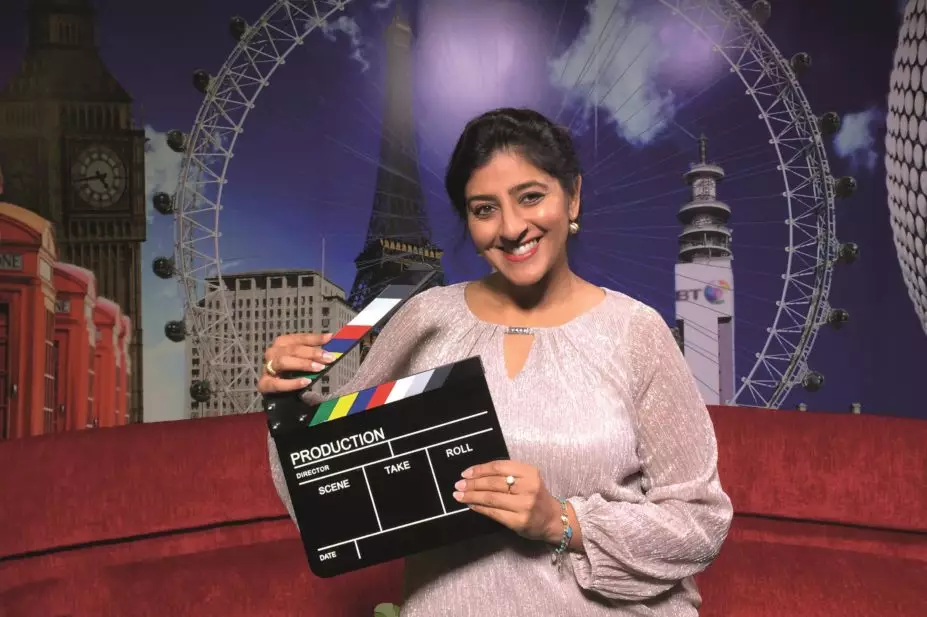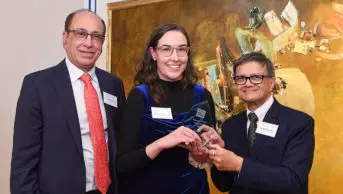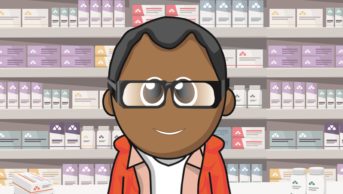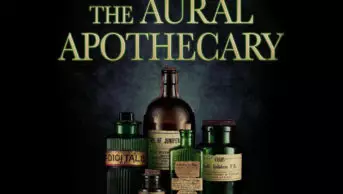
Courtesy of Bav Heer
Pharmacist Bav Heer is a presenter for a live morning television programme in Birmingham in which she discusses lifestyle advice and nutrition. Here, she explains what she does and why her role is so rewarding.
What is your current role and how did you get there?
I am a co-host on a live morning show on a community TV channel, whose audience spans 106 countries and serves mainly the Sikh and Punjabi community. It is a lively show during which the news and weather are discussed along with current affairs. I am the health and wellness correspondent for the channel and I offer nutrition and lifestyle advice.
I qualified as a pharmacist in 1997 and my personal curiosity led me to train as a naturopathic nutritional therapist. My own passion to help combat the onset of lifestyle diseases (for example, type 2 diabetes and heart disease) took me on a journey to Egypt where I gave a talk on nutrition and diabetes at a diabetes conference for doctors. I was then headhunted to become director of studies for the College of Naturopathic Medicine in Birmingham, UK. My role included PR and marketing alongside running the college and I set up my own practice too, while still undertaking locum shifts as I built my portfolio.
When I saw the impact that nutritional intervention was having on my clients’ health I wanted to make a difference on a larger scale. One of my friends hosted a drug and alcohol addiction programme and he introduced me to the television channel. The original proposition was to do a series of pre-recorded shows that could be aired repeatedly but, after the first screen test, the production team decided that they wanted to start a morning show instead. I agreed without really understanding what I was agreeing to — and now I’m a regular television presenter.
What do you do on a typical day at work?
I need to be at the studio at least 30 minutes before going live so I arrive by 7.45am. I usually have my topic prepared and I take notes with me (written in English). On arriving to the studio, I attach my microphone and get seated while running through the technical checks. Then the co-presenter and I have a quick discussion about what we will discuss and then we go live.
There are days when there is a replacement co-host at the last minute and I have to make the best of the situation. It is important to be able to adapt quickly under time pressure. One day, there was an accident and the co-host was delayed, so I had to do the first half of the show by myself.
I am usually finished by 9.30am so I can continue with other work and this allows me to undertake locum shifts sometimes.
What do you enjoy most about your work?
I enjoy the fact that I am helping my community in a positive way and I hope I am making an impact on people’s health. Associating health conditions and certain symptoms with nutrition is common practice in my community — Ayurvedic principles of food and its properties are known throughout India. Therefore, I know the audience is interested in what I’m saying and I am able to explain symptoms and reiterate the importance of certain lifestyle factors that can prevent or cause health problems.
I present the information bilingually in Punjabi and English and I enjoy using both languages in a professional setting.
The second half of the show relies on participation and engagement and is open to callers from across the world. Callers give feedback, often thanking me for my contribution to the community and helpful advice, and may request certain topics to be discussed on the next show. I find myself being recognised and stopped by viewers — in particular, elderly viewers are complimentary and encouraging. This sense of achievement and being able to educate and coach people on a large scale gives me motivation to continue.
What do you find most challenging about your work?
Working on TV is a positive stress — just being sat on the sofa with three cameras in front of you is almost terrifying at first. The fact that the show is broadcast live means that I need to be alert and ready to say something in response to my co-host. We do not rehearse and there is no autocue either so we go with the flow. There are moments when I feel as though my mind is going blank, but I cannot just sit there and think when we are live on air.
My role on the show involves splitting the conversation equally between Punjabi and English — this alone is challenging. There are technical hitches too, for example, if my earpiece cuts out I do not know when the countdown to the break starts, which adds pressure. The true challenge is to keep going and maintain your composure without letting it show.
How does your background as a pharmacist help you do your job?
Being a pharmacist gives me confidence and helps with my credibility. Because I try to take time with my customers in my role as a pharmacist, I have built up experience that means I know what is important to the public and how to deliver advice.
Seeing an increase in conditions, such as diabetes, obesity and inflammatory conditions, only enhances my belief that lifestyle and nutrition interventions are of utmost importance. I see valuable results in my nutrition practice, so I can draw on that knowledge and experience to reinforce the message that I give.
What might someone find surprising about your job?
I have interviewed successful individuals within the community who I believe to be inspirational and positive role models. We are reaching out to a large global community so it is great to be able to demonstrate to the audience that certain barriers can be challenged. For example, I invited a female kick-boxer to the show to discuss her career because in some countries women are not encouraged to participate in sports.
Occasionally we open the show to debate — during the time of the referendum about whether Britain should leave the European Union, I suggested live on air that we have a show about the Brexit vote in Punjabi to help the audience to make a decision. This was a successful show during which we invited guests to discuss both sides of the vote.
The most spontaneous thing I have ever done is to high-five my guest, who was a doctor and an MMA (mixed martial arts) fighting champion, when he agreed that nutrition and lifestyle were factors involved in the onset of diseases. I got away with it, too.
What are your career aims for the future?
I have been planning to publish a book about my experiences and why I think lifestyle and nutrition are so important. I am considering becoming more involved and active across social media channels because this is how people and businesses are recognised, so I have a wellness page on Facebook and I might start producing vlogs (short video blogs) in the near future.
I would like to create a holistic wellness centre where complementary, naturopathic and allopathic services are available. Naturopathic medicine is recognised and offered in other countries and I would like to see this change in the UK too. I am registered with the Complementary and Natural Healthcare Council (CNHC), the UK voluntary regulator for complementary therapists, so I can offer my services on the NHS. I would like to be able to help individuals who are not in a position to pay for private consultations.


